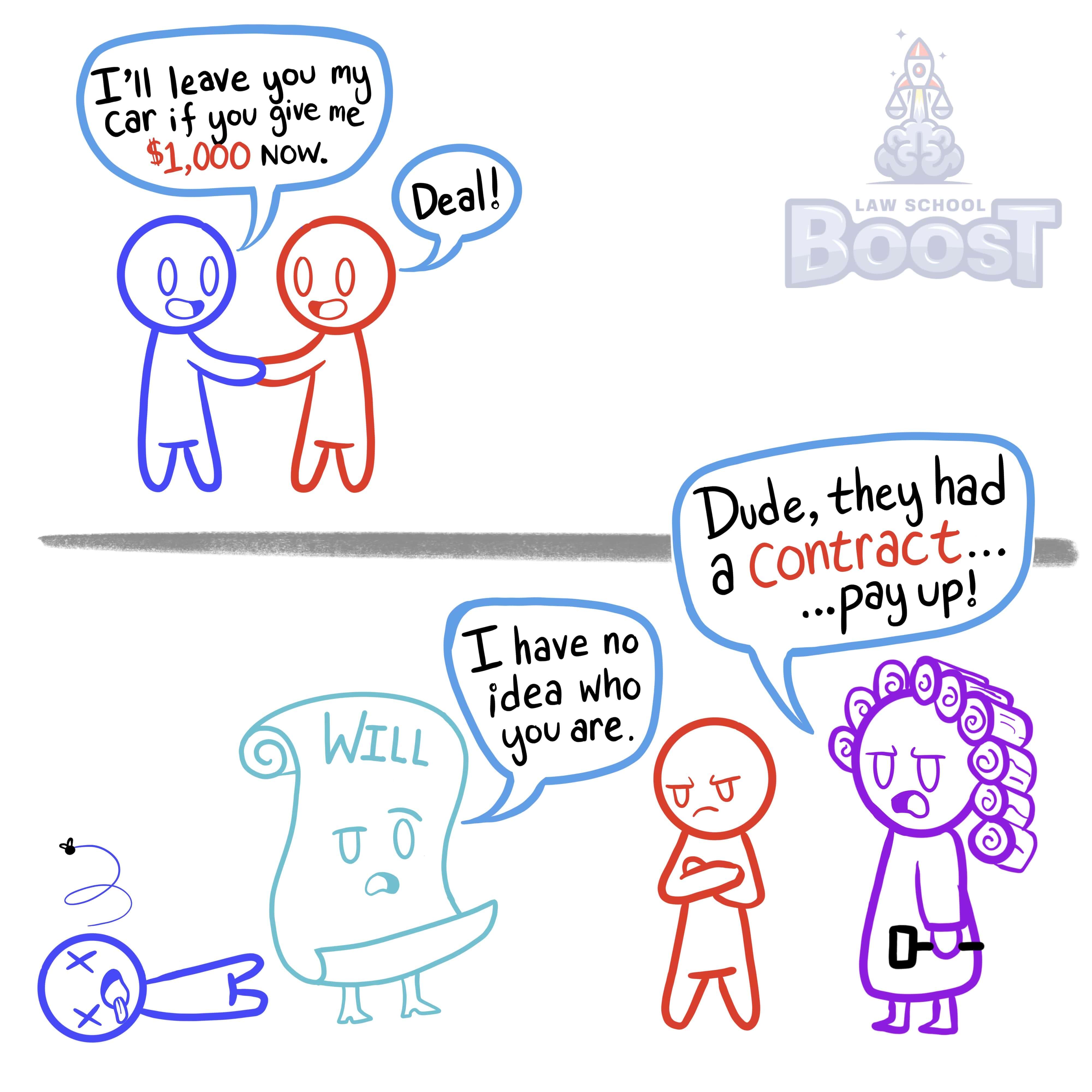😭
Wills • Contracts
WILLS#053
Legal Definition
Where a testator makes a contract to not revoke a gift or will, and the gift is not in his will, the testator is in breach of contract and the non-breaching party has cause of action against the estate. The cause of action accrues when the testator dies, unless the testator's actions constitute fraud on the promisee.
Joint or mutual wills do not create a presumption of a contract not to revoke.
The remedy for breach is damages, specific performance or a constructive trust.
Joint or mutual wills do not create a presumption of a contract not to revoke.
The remedy for breach is damages, specific performance or a constructive trust.
Plain English Explanation
Wills go through probate, but contracts simply follow contract law. So if Bob forms a valid contract with Sam and promises to leave Sam his motorcycle upon death, but then after Bob dies, the motorcycle is not given to Sam, Sam can sue Bob's estate. What can Sam sue the estate for exactly? It depends. If the motorcycle is missing, Sam can pursue damages for the cost/value of the motorcycle. If the motorcycle is still owned by the estate, but they aren't giving it to Sam, Sam can demand specific performance, which would force the estate to transfer the property to him. Finally, if the estate has wrongfully given the motorcycle to someone else, Sam can try to have it transferred back to him via a constructive trust.
Hypothetical
Hypo 1: Bob promises Sam in a valid contract that he will leave his vintage car to Sam in his will. However, Bob sells the car and leaves nothing to Sam in his will. Result: Bob broke the promise he made in the contract. After Bob's death, Sam can take legal action against Bob's estate to either get the value of the car or force the estate to honor the promise.
Hypo 2: Sam and Bob make a joint will, leaving everything to each other. After Sam's death, Bob changes the will to leave everything to his new spouse, leaving nothing for Sam's children. Result: Even though they had a joint will, there was no contract promising not to change it. Bob's actions are legally okay, and Sam's children can't claim anything based on the original joint will.
Hypo 3: Bob signs a contract with Sam, promising to leave him his house in the will. Bob passes away, but the house isn't mentioned in the will. Result: Bob's estate breached the contract with Sam. Sam can sue the estate and might be awarded damages, or the court might order the estate to give the house to Sam as per the contract.
Hypo 2: Sam and Bob make a joint will, leaving everything to each other. After Sam's death, Bob changes the will to leave everything to his new spouse, leaving nothing for Sam's children. Result: Even though they had a joint will, there was no contract promising not to change it. Bob's actions are legally okay, and Sam's children can't claim anything based on the original joint will.
Hypo 3: Bob signs a contract with Sam, promising to leave him his house in the will. Bob passes away, but the house isn't mentioned in the will. Result: Bob's estate breached the contract with Sam. Sam can sue the estate and might be awarded damages, or the court might order the estate to give the house to Sam as per the contract.
Visual Aids



